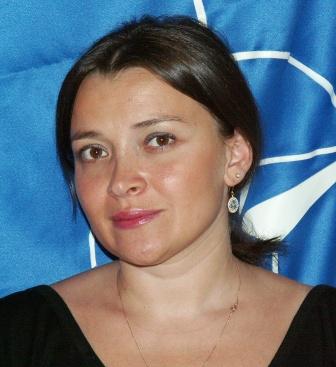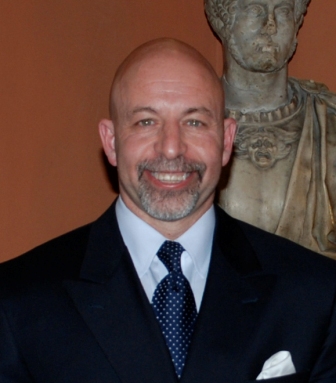Featured
 The Potomac Institute for Policy Studies is pleased to announce that The Honorable Stephen M. Duncan, who served as Assistant Secretary of Defense in the administrations of two Presidents, and as the senior Department of Defense counterdrug official, has been named a Senior Fellow of the Institute.
The Potomac Institute for Policy Studies is pleased to announce that The Honorable Stephen M. Duncan, who served as Assistant Secretary of Defense in the administrations of two Presidents, and as the senior Department of Defense counterdrug official, has been named a Senior Fellow of the Institute.
Commenting on the appointment, Potomac Institute Chairman and CEO Michael Swetnam said, "Steve is one of the most talented and experienced senior leaders that this country has ever produced. His addition to our growing cadre of experts is something I am truly proud of."
Read more: The Honorable Stephen M. Duncan Is New Senior Fellow
 Associate Academic Fellow Khatuna Mshvidobadze, MBA, joined the Potomac Institute in 2011. A native of Georgia, Ms. Mshvidobadze became interested in cyber security issues in 2008, when the country experienced a cyber attack in conjunction with an invasion by Russian forces. She is currently involved in a research project to assess the role of social media in the recent Russian elections. In this video, she talks about the experience of living in a country that has experienced a cyber assault and the opportunity to work with the new Potomac Institute Cyber Center (PICC). Click below to watch.
Associate Academic Fellow Khatuna Mshvidobadze, MBA, joined the Potomac Institute in 2011. A native of Georgia, Ms. Mshvidobadze became interested in cyber security issues in 2008, when the country experienced a cyber attack in conjunction with an invasion by Russian forces. She is currently involved in a research project to assess the role of social media in the recent Russian elections. In this video, she talks about the experience of living in a country that has experienced a cyber assault and the opportunity to work with the new Potomac Institute Cyber Center (PICC). Click below to watch.
 Prof. James Giordano, PhD, is Vice President for Academic Programs and Director of the Center for Neurotechnology Studies at the Potomac Institute for Policy Studies. In comments to the Los Angeles Times, he reacted to revelations that the US Army sergeant who confessed to a deadly shooting rampage had been previously diagnosed with a traumatic brain injury. The shooting spree killed 16 Afghan civilians. Prof. Giordano says the behavioral effects of a brain injury can be complex and difficult to predict. Click here to read the article in full.
Prof. James Giordano, PhD, is Vice President for Academic Programs and Director of the Center for Neurotechnology Studies at the Potomac Institute for Policy Studies. In comments to the Los Angeles Times, he reacted to revelations that the US Army sergeant who confessed to a deadly shooting rampage had been previously diagnosed with a traumatic brain injury. The shooting spree killed 16 Afghan civilians. Prof. Giordano says the behavioral effects of a brain injury can be complex and difficult to predict. Click here to read the article in full.
 Prof. James Giordano, PhD, is Vice President for Academic Programs and Director of the Center for Neurotechnology Studies at the Potomac Institute for Policy Studies. In an interview with Nature, he discussed the effects of traumatic brain injury (TBI) in the context of the Afghanistan killing spree allegedly committed by US Army sergeant Robert Bales. Prof. Giordano says TBI can produce a wide range of symptoms in sufferers, and it's difficult to predict whether it will cause violent behavior in any one individual. Click here to read the article in full.
Prof. James Giordano, PhD, is Vice President for Academic Programs and Director of the Center for Neurotechnology Studies at the Potomac Institute for Policy Studies. In an interview with Nature, he discussed the effects of traumatic brain injury (TBI) in the context of the Afghanistan killing spree allegedly committed by US Army sergeant Robert Bales. Prof. Giordano says TBI can produce a wide range of symptoms in sufferers, and it's difficult to predict whether it will cause violent behavior in any one individual. Click here to read the article in full.
 Prof. James Giordano, PhD, is Vice President for Academic Programs and Director of the Center for Neurotechnology Studies at the Potomac Institute for Policy Studies. In the latest post on his blog NeuroBioEthics, he writes about the "can of worms" opened by some of the latest neurotechnologies. Prof. Giordano explains that technologies including brain computer interfaces (BCIs), neurostimulation, and neural stem cell therapy have a wide range of applications in medicine, defense, education and other fields. But they also raise a host of ethical questions. "I think that it’d be foolish not to dip into the most current knowledge that neuroscience can provide to develop neurotechnologies that are more in tune with human physiology, and ecology. But ideas of what constitutes flourishing and the good life can be slippery," Prof. Giordano writes. Click here to visit the NeuroBioEthics blog site.
Prof. James Giordano, PhD, is Vice President for Academic Programs and Director of the Center for Neurotechnology Studies at the Potomac Institute for Policy Studies. In the latest post on his blog NeuroBioEthics, he writes about the "can of worms" opened by some of the latest neurotechnologies. Prof. Giordano explains that technologies including brain computer interfaces (BCIs), neurostimulation, and neural stem cell therapy have a wide range of applications in medicine, defense, education and other fields. But they also raise a host of ethical questions. "I think that it’d be foolish not to dip into the most current knowledge that neuroscience can provide to develop neurotechnologies that are more in tune with human physiology, and ecology. But ideas of what constitutes flourishing and the good life can be slippery," Prof. Giordano writes. Click here to visit the NeuroBioEthics blog site.
